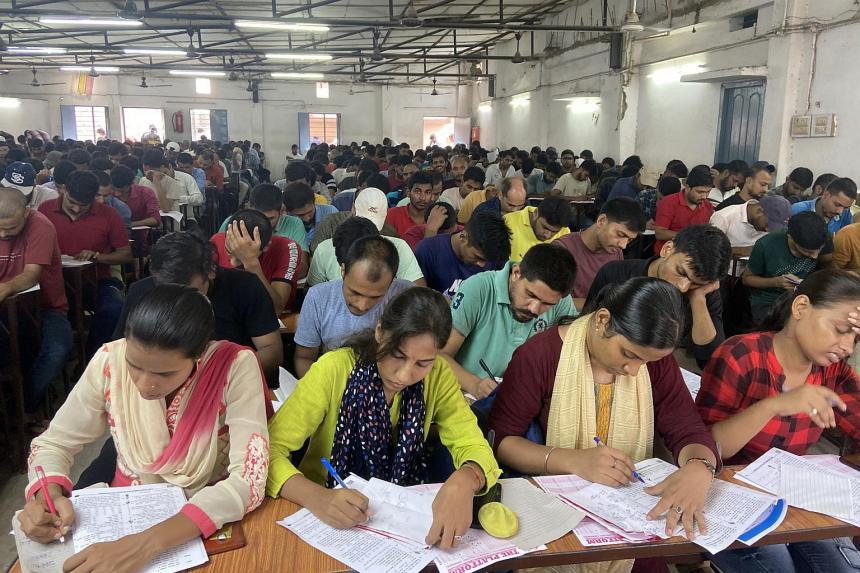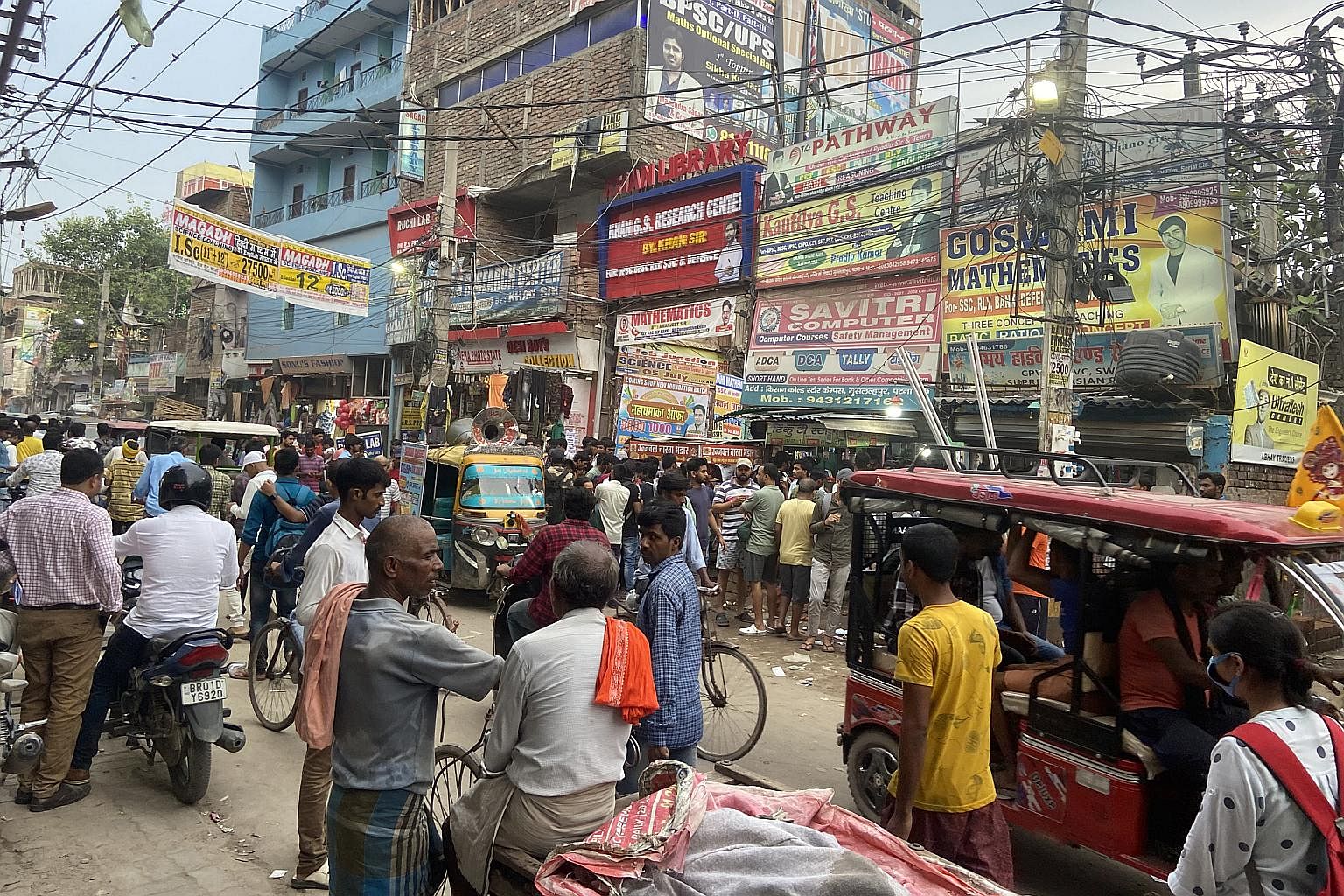Steep competition in tough exams for highly coveted govt jobs in India

PATNA - Graduate Suman Kumar, 26, has taken one competitive exam for government jobs every two months on average for the last four years. These jobs range from a police sub-inspector to a railway clerk.
So far all his attempts have been unsuccessful, given how the odds are not exactly stacked in his favour.
Every government job attracts hundreds of thousands of applicants.
In the last eight years, the federal government has hired 722,311 candidates out of 220 million applications through competitive nationwide exams.
Mr Kumar, who comes from modest means from a farming family in Bihar state, does not let himself lose hope as he does not see any other avenue of quality employment.
Bihar, which has a weak private sector with industry contributing just 15 per cent of gross domestic product (GDP), had the second highest unemployment rate among graduates at 34.2 per cent between January and April 2022, following Rajasthan at 54.2 per cent, according to the Centre for Monitoring Indian Economy (CMIE).
Mr Kumar is just one among hundreds of thousands of government job seekers in one of India's poorest states.
"Every day, I do self-study in the library from 10am to 6pm. I then go for coaching in the evenings. And at home, I take online classes," said Mr Kumar, who spends 4,000 rupees (S$70) a month living and studying in Musallahpur Haat in Patna, the capital city of Bihar and a magnet for those seeking affordable coaching.
"I will get a positive result soon. I feel it."
Musallahpur Haat is a congested locality where an entire ecosystem exists with at least 100 coaching centres offering courses at cut-throat rates. Tuition starts at 100 rupees for a three-month course to 10,000 rupees for an eight-month course.
Billboards line the streets to woo students. "Utter in English with utter fluency", says one advertisement promising fluency within three months.
Bihar has the highest proportion of young people in the country, with over 58 per cent of the population under the age of 25.
But employment opportunities are limited in this eastern state, where many have traditionally migrated to other parts of the country or overseas in search of employment and education.
In February, young men went on a rampage torching trains, upset because the government had changed the format of railway exams without notice.
Similar violent riots took place in June after the government amended the recruitment for the military and introduced four-year contracts in place of long commissions for soldiers. More than 800 people were arrested for the rioting.
“This desire for government jobs is a kind of barometer of the paucity of decent and aspirationally paying jobs,” said Professor Amit Basole, an economist at Azim Premji University, referring to jobs that meet the aspirations of job seekers. He also noted that private sector opportunities are far better in the southern and western parts of the country.
They confer respectability, pushing up prospects on the marriage market, and providing job security coupled with regular 9-to-5 work, unlike the private sector.

At Platform coaching centre in Musallahpur Haat, job seekers sit in airless classrooms, sweating profusely as a large timer at the front of the room counts down the time for a mock railway exam, due later in August.
The results are conveyed through Telegram to the students, said Mr Navin Kumar Singh, who runs the centre, which also offers coaching besides mock tests. Students are charged 10 rupees for the test.
At his centre, 60 per cent are from rural areas, he said.
Many are the first in the family to move away from farming, with agriculture offering limited scope amid small landholdings and stagnant crop yields.
But high unemployment is by no means a problem restricted to Bihar.
CMIE data showed the national unemployment rate rose from 7.1 per cent in May to 7.8 per cent in June.
India may be the world's fastest-growing economy but it paradoxically suffers from the problem of jobless growth, with not enough jobs being created to absorb the large number entering the employment pool.
"Unemployment among the uneducated youth is high and it has been climbing," noted Prof Basole.
"And that's not going away anytime soon."
Subscribe to a wide range of content from exclusive features and in-depth insights to editorials and interviews
Join ST's Telegram channel and get the latest breaking news delivered to you.









No comments:
Post a Comment